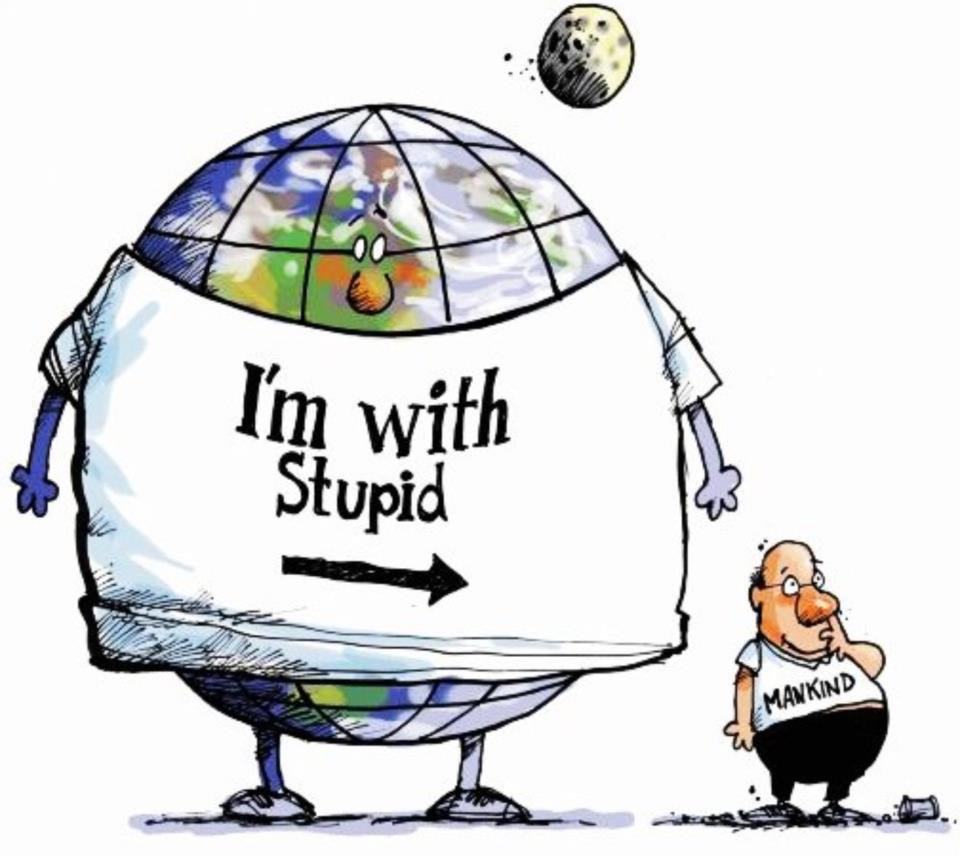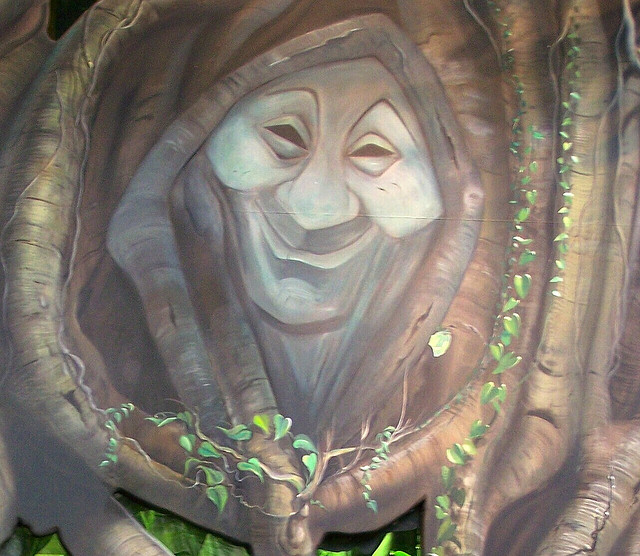
 | The Xenophile Historian |
THE HOLY BOOK OF UNIVERSAL TRUTHS,
K. U. P.
(Kimball's Unauthorized Perversion)
Then in April I read two articles about how nature is doing a better job than we expected, when it comes to cleaning up after us.. The first article told how there are organisms that can get rid of any waste we dump on the earth, no matter how toxic. For example, there is a fungus growing in the neighborhood of Chernobyl that eats radiation.
6 Ways Nature Cleans Up Our Messes Better Than We Do
The other article talked about steel-eating bacteria, fungi and other microbes which have formed elaborate colonies on the wreck of the Titanic, to consume that famous ship more quickly.
Gigantic New SuperOrganism with ‘Social Intelligence’ is Devouring the Titanic
Together these stories tell me that we won’t destroy the environment through global warming, acid rain, nuclear radiation, etc.; if we try to do it, the environment will destroy us first. After all, God, nature, or whatever you want to call the force controlling the environment, brought us into the world; wouldn't it be just as easy to take us out, too?
Now we think we are a threat to the earth because of our pollution, our ability to drive species of animals to extinction, and our abilty to modify the environment. Well, I've got news for you; whether you believe in creation, catastrophism or evolution, you have to admit that the world has seen much worse than what we are inflicting on it now. When it comes to global warming, world temperatures may have increased a degree or two in the twentieth century, but back in dinosaur days, we estimate that world temperatures averaged 12.5o degrees F. above current levels, so we have a long way to go. Recently I read a theory about a "methane burp," which proposed that at the end of the Triassic period, a great eruption of methane gas from the ocean floor killed off half the world's ocean life, and did a lot more to warm the atmosphere than today's CO2 emissions can do. If it comes down to a fight to the finish between mankind and the earth, the safe bet is on the earth.

Alright, what else has the world endured, besides the slight fever we call global warming? The ice age. Mass extinctions. Hurricanes and tornadoes; the typical hurricane packs more power than a nuclear bomb. Terrible earthquakes and volcanic eruptions. Continental drift. Solar flares. Asteroids, meteors, and possibly comets hitting the earth. Once, the whole western half of Siberia melted down, creating rock formations we call the Siberian Traps; that's an area the size of the United States. And we as a species are egotistical enough to think we are more dangerous than all that!
The point I am making is that every time we think we can control nature, nature proves through her tricks that she (he? it?) is one step ahead of us. Here are some examples:
1. Superbugs. Every time we come up with an effective new antibiotic and expose it to disease-causing microbes, most of them die, but a few usually survive, and they go on to become a strain of bacteria or virus that is immune to the wonder drug. Because bacteria can produce several generations in just one day, while it takes at least twenty years for us to raise our next generation, it's safe to say that the germs will always beat us, in the natural selection race. Natural selection's biggest drawback is that when an organism becomes too specialized, it can no longer live long enough to reproduce; we see that in all the fancy dogs and crops we have bred that only survive when humans take care of them. But if the genetic track record can be trusted, I have a feeling that we will reach our limits of specialization before the bugs reach theirs.
2. The Gore Effect. For those who haven't read my paper on global warming, the Gore Effect is the Urban Dictionary's term for how blizzards and ice storms will strike, whenever Al Gore makes a speech on global warming, or governments hold a conference on the subject. Some of it may simply be from bad choices on the time and place for such speeches/meetings (e.g., Oswego, NY in January), but when a conference tried to escape that tendency by meeting in Cancun, the Gore Effect happened even there; the Mexican resort experienced temperatures as low as 54 degrees F., the coldest they have seen in a century (December 2010). Somebody up there is having a good laugh at our expense.
3. I remember a news story back from the 1970s about scientists trying to breed cows with oversized udders to give more milk. The cattle in question responded by giving birth to mostly bull calves. We've learned a lot about genetic engineering since then, but I don't think our scientists can overcome a tactic like that.
Many pagan religions portray the earth as a mother goddess. The Greeks had Gaia, for instance. Think of Grandmother Willow in Disney's "Pocahontas" (see the first picture below) and you won't be too far off. There are some exceptions (the Egyptians and the Japanese saw the earth as male), but the overall tendency is for any pantheon to have a Mother Earth and a Father Sky. In practice, however, nature has usually been mankind's adversary, not a parent. Plants, animals, microbes, the weather and things flying around in space (e.g., meteors) have all been out to get us. Throughout the ages, we have battled against these things. Maybe the Hindus had the right idea when they gave the title "Black Earth Mother" to Kali, their goddess of death (see the second picture).


Support this site!